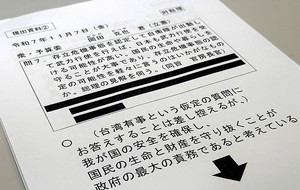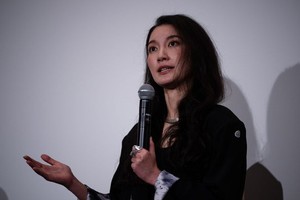By SHIMPACHI YOSHIDA/ Senior Staff Writer
August 6, 2022 at 14:50 JST
A last-minute change in a police officer’s location and the man’s failure to notify a superior the spot was now unguarded are believed to be the main factors that left former Prime Minister Shinzo Abe vulnerable to an attack from his back.
Those are the findings of a National Police Agency (NPA) investigation into the circumstances surrounding the fatal shooting of Abe on July 8 while he gave a campaign speech in Nara city.
The police officer in question was initially tasked with keeping an eye out for suspicious characters in the area behind where Abe was to give his speech. Not only did the change leave Abe unguarded from the rear, but it was not reported to the commanding officer.
“If a report had been made, there was a possibility reinforcements could have been called in to maintain an adequate watch in the back,” an NPA official said.
The assessment by the NPA was submitted to the National Public Safety Commission. The two entities concluded that the last-minute movement by the police officer allowed Tetsuya Yamagami, 41, to move to within 5 meters of Abe and fire a second fatal shot.
The NPA said the lack of an organized response that included the command structure provided the opportunity for Yamagami to get close enough to the veteran politician to kill him.
Prior to 11:30 a.m. when Abe began his speech on July 8, three police officers were standing guard within the designated area marked off by a guard rail. A fourth officer initially stood outside the area and was tasked with keeping a watch on suspicious movements in the rear.
But just before Abe began speaking, the fourth officer moved to within the guard rail area at the instruction of another officer. The crowd gathered to Abe’s right had increased in size and the fourth officer was told to keep an eye on the people.
That meant there was no officer watching out for Abe’s back.
The officers on the scene were in radio contact with each other, but no report was made to the commanding officer.




















A peek through the music industry’s curtain at the producers who harnessed social media to help their idols go global.
A series based on diplomatic documents declassified by Japan’s Foreign Ministry
Here is a collection of first-hand accounts by “hibakusha” atomic bomb survivors.
Cooking experts, chefs and others involved in the field of food introduce their special recipes intertwined with their paths in life.
A series about Japanese-Americans and their memories of World War II